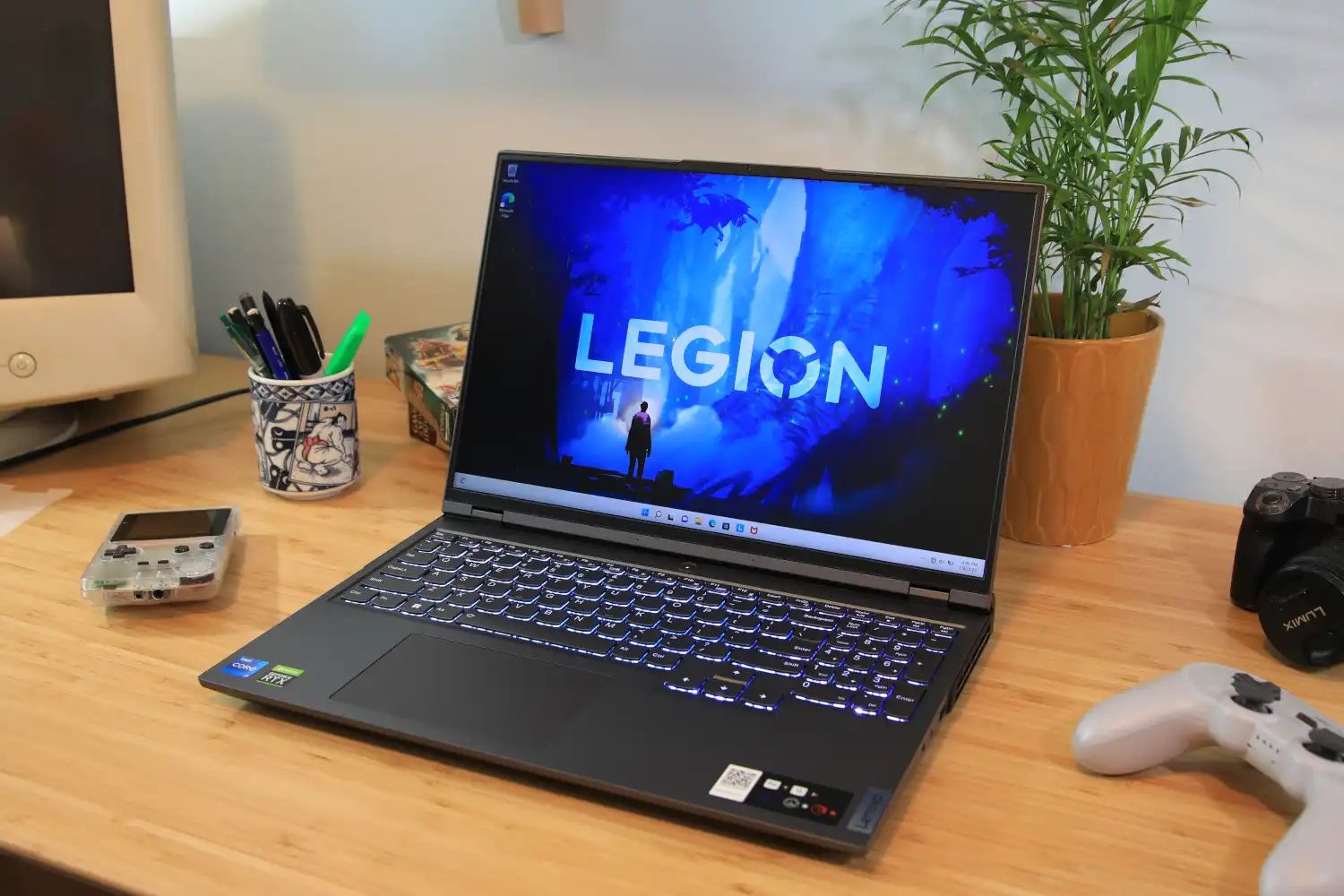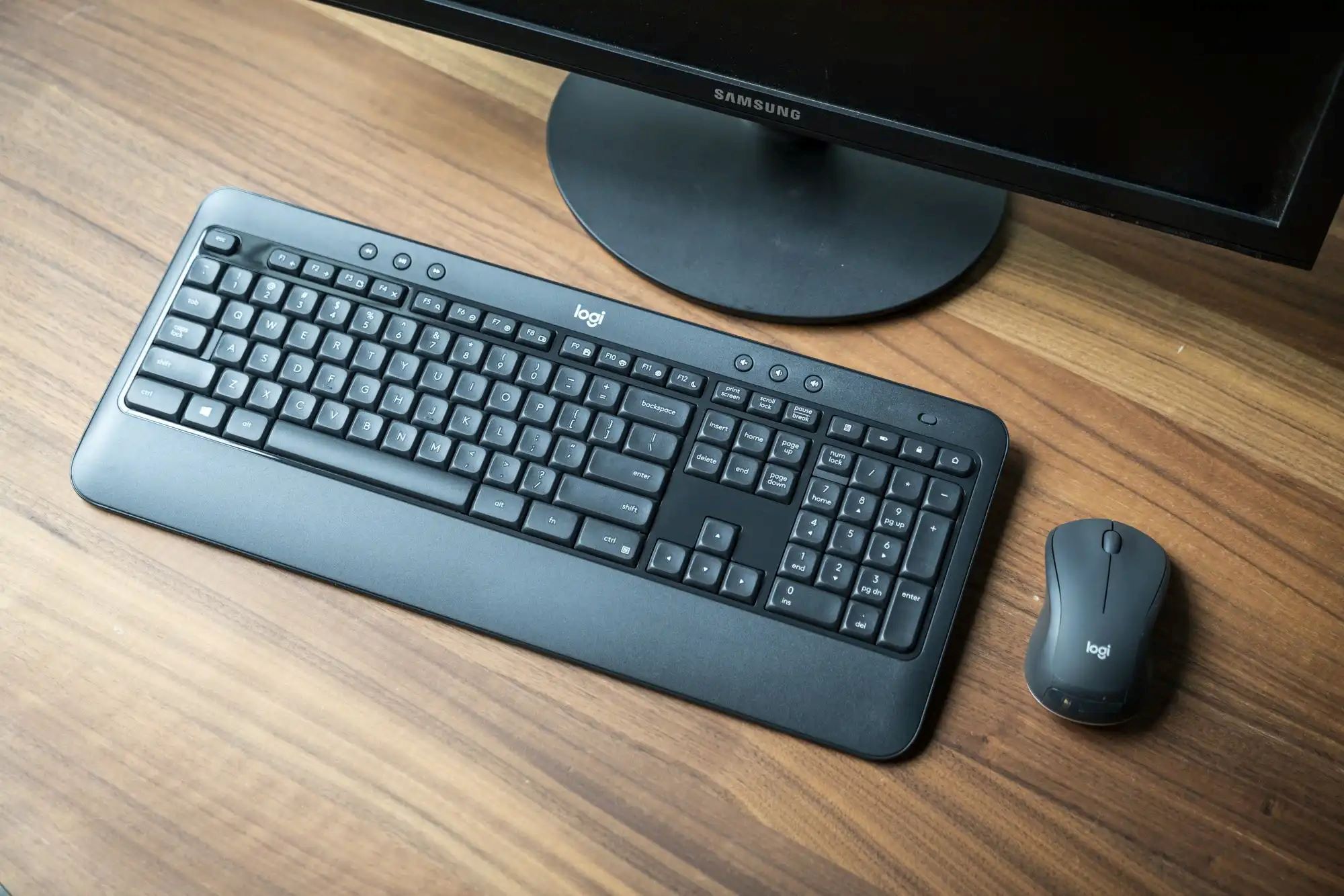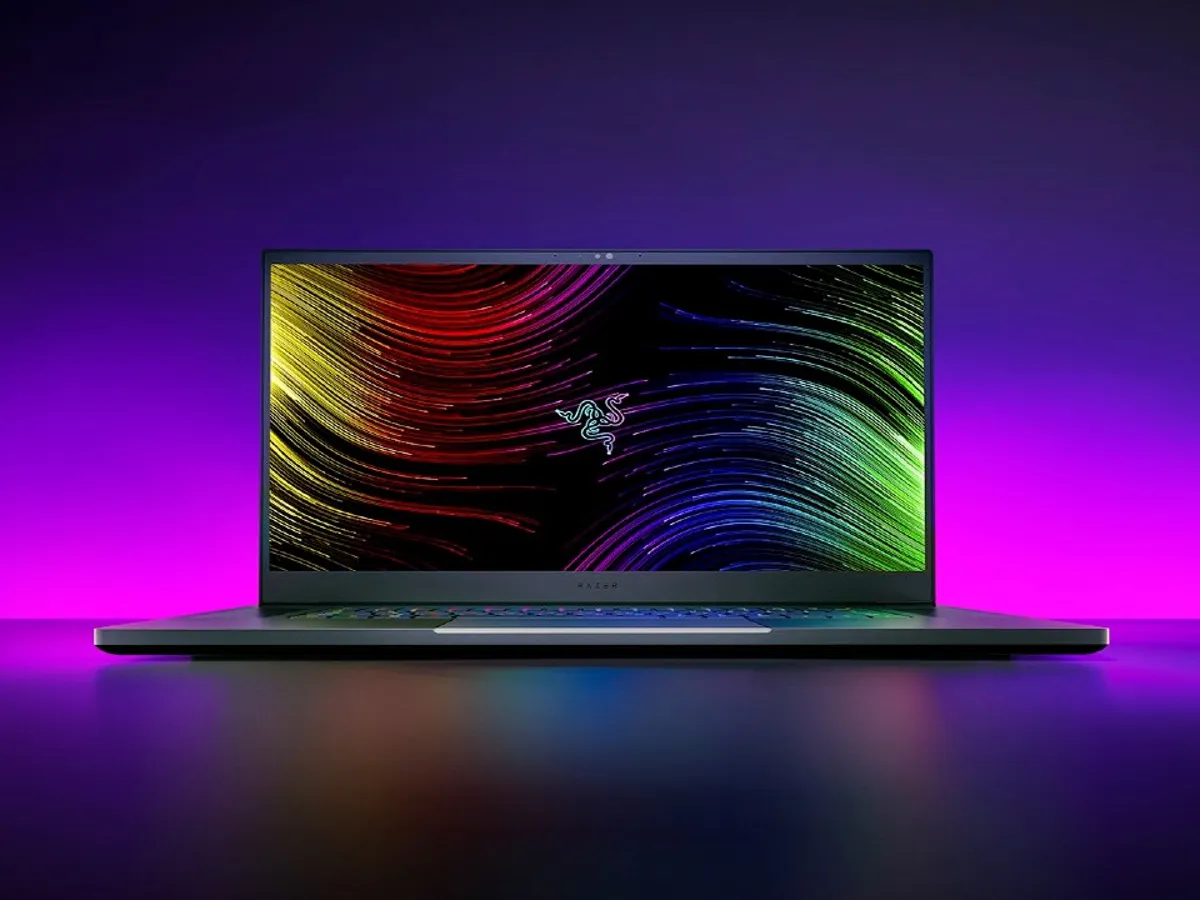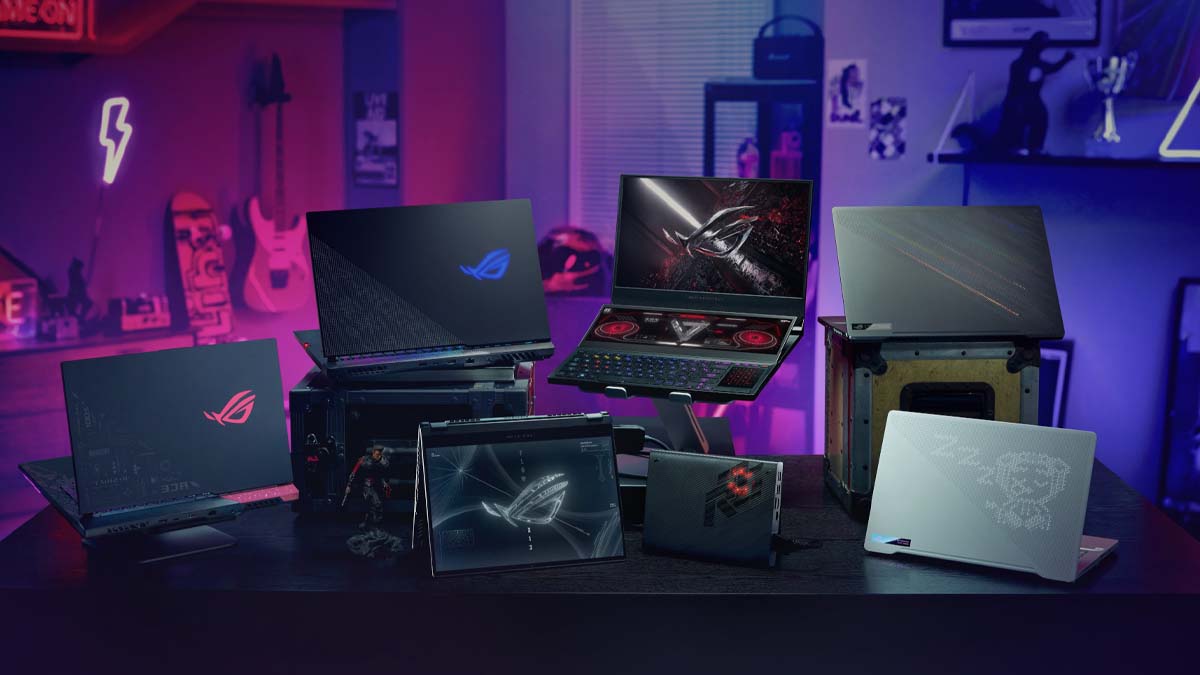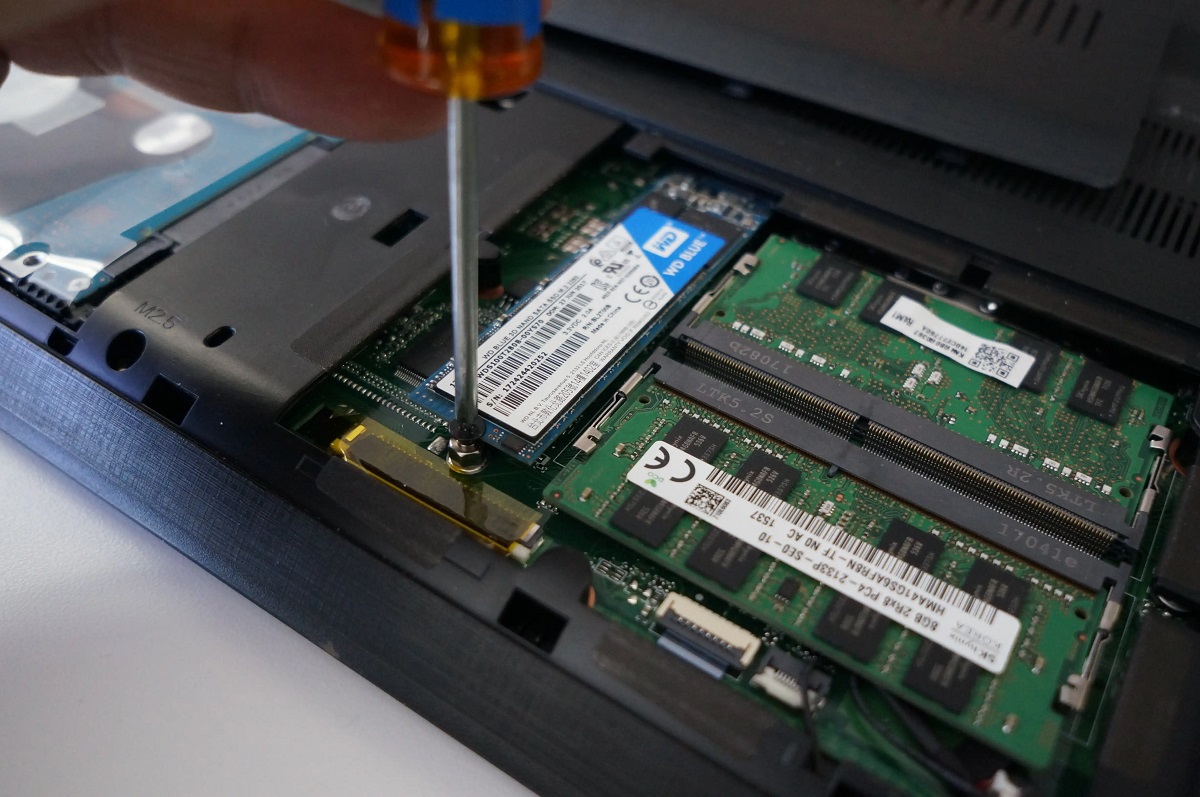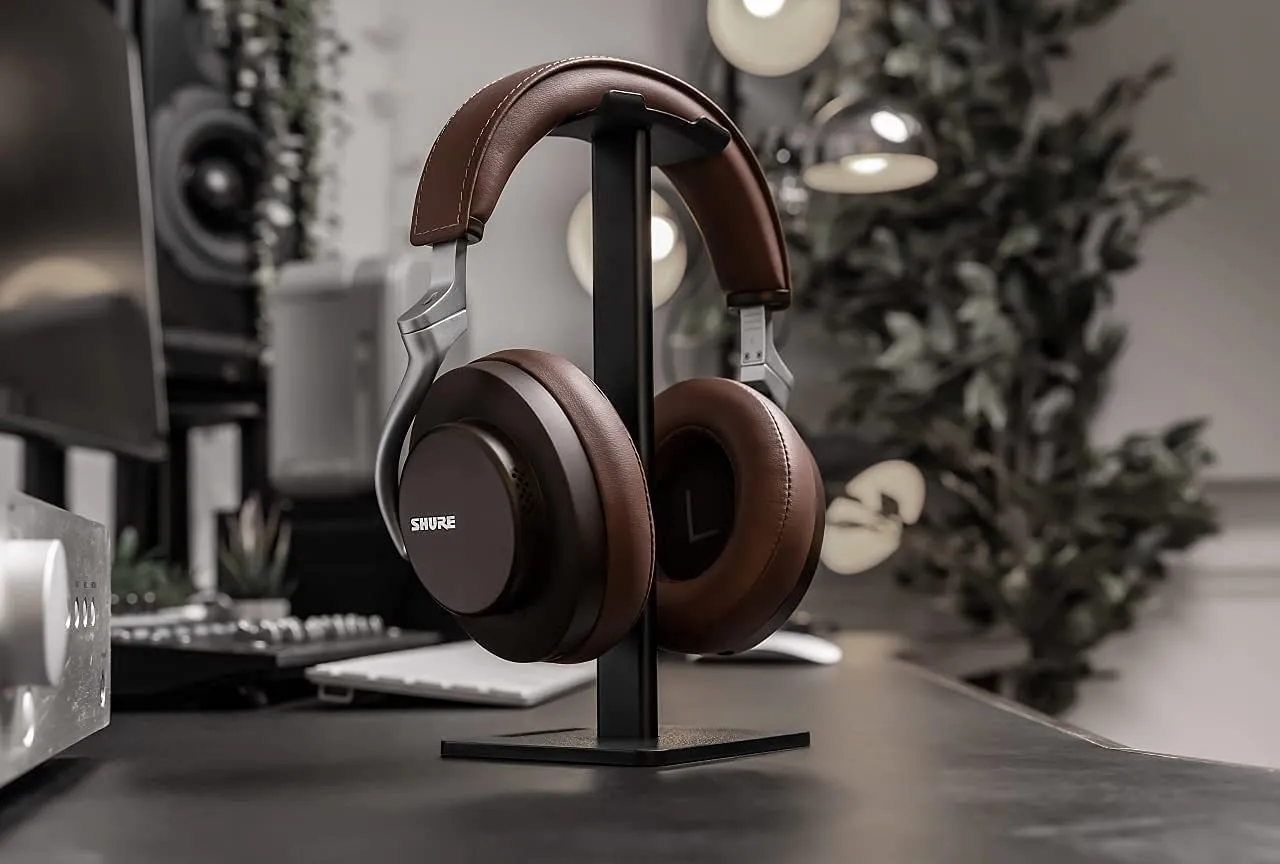Introduction
Gaming laptops have become increasingly popular as more and more people are indulging in the thrill of immersive gaming experiences. However, one common concern among gamers is the lifespan of these laptops, especially when used for extended gaming sessions.
A gaming laptop’s lifespan can vary depending on several factors, such as the quality of the components, the intensity of usage, and the level of care and maintenance. Understanding these factors can help you make informed decisions when purchasing a gaming laptop and ensure that it lasts as long as possible.
In this article, we will explore the various factors that can influence the lifespan of gaming laptops, the importance of proper care and maintenance, recommended usage practices, and how to identify signs that your laptop may be nearing the end of its lifespan. We will also discuss tips for upgrading and extending the lifespan of your gaming laptop to help you get the most out of your investment.
Whether you’re a hardcore gamer or a casual player, understanding how to maximize the lifespan of your gaming laptop is crucial. With the right knowledge and practices, you can ensure that your laptop remains in optimal condition, providing you with a seamless gaming experience for years to come.
Factors that Affect the Lifespan of Gaming Laptops
Several factors play a significant role in determining the lifespan of gaming laptops. Being aware of these factors can help you make informed decisions when it comes to purchasing and maintaining your gaming laptop.
1. Build Quality: The build quality of a gaming laptop is crucial for its longevity. Laptops constructed with high-quality materials and sturdy construction tend to have a longer lifespan compared to those made with cheaper, flimsy materials.
2. Cooling System: Gaming laptops generate a lot of heat during intense gaming sessions. A robust and efficient cooling system, including fans and heat sinks, is essential to dissipate heat and prevent damage to internal components. Overheating can significantly reduce the lifespan of a laptop.
3. Component Quality: The quality of components, including the processor, graphics card, RAM, and storage, plays a significant role in the overall lifespan of a gaming laptop. High-quality components are designed to withstand heavy usage and provide reliable performance over an extended period.
4. Usage Intensity: The intensity and duration of gaming sessions can impact a laptop’s lifespan. Continuous, prolonged gaming sessions put a strain on the hardware, causing increased wear and tear. Frequent heavy gaming can accelerate component deterioration and reduce the overall lifespan of the laptop.
5. Environmental Factors: The environment in which a gaming laptop is used can affect its lifespan. Extreme temperatures, high humidity, and exposure to dust and debris can lead to component degradation. It is important to keep the laptop in a clean and well-ventilated environment for optimal performance and lifespan.
6. Manufacturer Support and Updates: The support and updates provided by the laptop manufacturer also play a role in the lifespan of the device. Regular updates, driver optimizations, and reliable customer support can prolong the lifespan of a gaming laptop by ensuring compatibility and resolving any issues that may arise.
7. User Care and Maintenance: The way a user handles and maintains their gaming laptop can greatly impact its longevity. Proper care includes regular cleaning, careful handling, avoiding liquid spills, and using protective cases when transporting the laptop.
By considering these factors, you can make informed decisions when purchasing a gaming laptop and implement the necessary practices to prolong its lifespan. In the next section, we’ll explore the importance of proper care and maintenance for your gaming laptop.
The Importance of Proper Care and Maintenance
Proper care and maintenance are essential for ensuring the longevity and optimal performance of your gaming laptop. Neglecting these aspects can result in decreased lifespan, reduced performance, and potential hardware failure. Here are the reasons why proper care and maintenance are crucial:
1. Preventing Dust Accumulation: Dust can accumulate inside the laptop, clogging the cooling system and reducing its efficiency. Regular cleaning, using compressed air to remove dust from the fans and vents, can prevent overheating and extend the lifespan of your laptop.
2. Handling with Care: Mishandling your laptop, such as dropping it or placing heavy objects on it, can result in physical damage to the internal components. It is important to handle your gaming laptop with care and use a protective case or sleeve when transporting it.
3. Managing Power Supply: Overcharging or repeatedly fully draining the battery can degrade its lifespan. It is advisable to use the laptop on a stable power source whenever possible, keep the battery level between 20% to 80%, and occasionally let it fully discharge and recharge to maintain its health.
4. Updating Software and Drivers: Regularly updating software, operating systems, and drivers for your laptop is crucial for compatibility, security, and performance improvements. These updates often include bug fixes and optimizations that can enhance the lifespan of your laptop by ensuring smooth operations.
5. Using Surge Protectors: Power surges can damage the sensitive components of your laptop. Plugging your laptop into a surge protector can prevent sudden spikes in voltage and protect your laptop from potential damage.
6. Avoiding Liquid Exposure: Liquids can cause irreversible damage to the internal components of your laptop. Keep liquids away from your gaming laptop at all times, and if a spill does occur, shut it down immediately and seek professional assistance for cleaning and repairs.
7. Regular Updating and Backup: Backing up your important files and regularly updating your backups can protect your data in case of unforeseen incidents or hardware failures. Regularly backing up your data ensures that even if your laptop’s lifespan comes to an end, you won’t lose valuable information.
By implementing proper care and maintenance practices, you can extend the lifespan of your gaming laptop and ensure optimal performance throughout its lifetime. In the next section, we will discuss recommended usage practices that can further enhance the longevity of your laptop.
Recommended Usage for Prolonged Lifespan
How you use your gaming laptop can significantly impact its lifespan. By following some recommended usage practices, you can ensure that your laptop remains in optimal condition and functions smoothly for an extended period. Here are some tips to consider:
1. Avoid Continuous Extended Gaming Sessions: While gaming is undoubtedly enjoyable, it’s important to give your laptop regular breaks. Continuous extended gaming sessions can put excessive strain on the hardware, leading to overheating and reduced lifespan. Take breaks and allow your laptop to cool down periodically.
2. Optimize Game Settings: Adjusting game settings to match your laptop’s capabilities can prevent unnecessary strain on the hardware. Lowering graphic settings, disabling unnecessary features, and optimizing in-game performance settings can reduce the workload on your laptop and help maintain a stable temperature.
3. Use a Cooling Pad: Investing in a cooling pad can provide additional cooling support to your laptop, especially during intense gaming sessions. Cooling pads have built-in fans that improve airflow and dissipate heat effectively, reducing the risk of overheating and extending the lifespan of your laptop.
4. Keep the Laptop Elevated: Placing your laptop on a flat, hard surface allows for better airflow and heat dissipation. Using a laptop stand or propping it up with a cooling pad can elevate the laptop and prevent heat from being trapped underneath, which can contribute to overheating.
5. Perform Regular System Optimization: Regularly optimizing your laptop’s system can help maintain its performance and extend its lifespan. This includes removing unnecessary files, running disk cleanup utilities, and defragmenting the hard drive to enhance overall efficiency and prevent system slowdowns.
6. Avoid Blocking Air Vents: Ensure that the air vents of your gaming laptop are not blocked or obstructed. Blocking the vents can restrict airflow, lead to increased temperatures, and potentially damage the laptop’s internal components. Always use the laptop on a flat, well-ventilated surface.
7. Shut Down Properly: When you’re finished using your gaming laptop, make sure to shut it down properly rather than putting it into sleep or hibernate mode. Shutting down the laptop completely allows for proper ventilation and prevents unnecessary power consumption, ensuring a longer lifespan.
By following these recommended usage practices, you can mitigate the risk of hardware strain and increase the longevity of your gaming laptop. In the next section, we will delve into understanding the lifespan of laptop components and how they can affect the overall lifespan of your device.
Understanding the Lifespan of Laptop Components
Every gaming laptop consists of various components that come together to provide the ultimate gaming experience. Each component has its own lifespan and can affect the overall lifespan of the laptop. Understanding the lifespan of these components can help you better manage your laptop and take appropriate steps to prolong its longevity.
1. Processor (CPU): The processor is the brain of the laptop and is responsible for executing instructions and performing calculations. Processors have a general lifespan of 3-5 years, depending on usage and advancements in technology. Upgrading your laptop’s CPU can extend its performance and lifespan.
2. Graphics Card (GPU): The graphics card is crucial for gaming, as it processes and renders the graphics and visuals. The lifespan of a graphics card is influenced by usage intensity and advancements in technology, typically lasting around 3-5 years before becoming outdated and needing an upgrade.
3. RAM (Memory): Random Access Memory (RAM) is used to temporarily store data and instructions for faster processing. While RAM does not have a specific lifespan, it is important to ensure you have enough memory to handle the demands of modern games. Adding more RAM can improve performance and extend the lifespan of your laptop.
4. Hard Drive (Storage): Hard drives are used to store your games, files, and operating system. Traditional hard drives have moving parts and are prone to mechanical failure. Solid State Drives (SSDs), on the other hand, have no moving parts and are more durable. On average, hard drives last around 3-5 years, while SSDs can last much longer.
5. Battery: Laptop batteries have a limited lifespan due to chemical degradation. With regular use, a laptop battery typically lasts 2-4 years before it starts to lose its ability to hold a charge. It is recommended to replace the battery when its capacity significantly decreases to ensure uninterrupted gaming sessions.
6. Display: The lifespan of the laptop’s display depends on factors such as usage and quality. LCD screens typically last 3-5 years, while newer technologies such as OLED may have a longer lifespan. Proper handling and avoiding physical damage can contribute to a longer life for the display.
7. Keyboard and Trackpad: The keyboard and trackpad are important components that undergo daily usage. With regular maintenance and proper use, these components can last the lifespan of the laptop. However, individual keys may wear out over time and require replacement.
Understanding the lifespan of laptop components allows you to be proactive in managing your device. Regular hardware upgrades, maintenance, and proper care can help prolong the overall lifespan of your gaming laptop. In the next section, we will discuss battery lifespan and management, which is a critical aspect of maintaining your laptop’s longevity.
Battery Lifespan and Management
The battery of a gaming laptop is a vital component that requires special attention for optimal performance and extended lifespan. Understanding the factors that affect battery lifespan and practicing proper battery management techniques can help you get the most out of your laptop’s battery. Here are some key points to consider:
1. Battery Lifespan: Laptop batteries have a limited lifespan due to their chemical composition. On average, a laptop battery lasts between 2-4 years, depending on usage patterns and maintenance. Over time, a battery’s capacity decreases, resulting in shorter battery life.
2. Proper Charging Habits: To prolong the lifespan of your laptop’s battery, it is crucial to adopt proper charging habits. Avoid overcharging the battery by unplugging the charger once the battery reaches 100%. Similarly, it is advisable to avoid letting the battery discharge completely, as this can also shorten its lifespan.
3. Consistent Use and Avoidance of Frequent Full Discharges: Regularly using your laptop on battery power helps keep the battery active and healthy. However, frequent full discharges can impact the battery’s lifespan. It is recommended to recharge the battery when it reaches around 20% to 30% to maintain optimal battery health.
4. Adjusting Power Settings: Adjusting your laptop’s power settings can help optimize battery usage. Lowering screen brightness, disabling unnecessary background processes, and using power-saving modes can extend battery life during gaming sessions.
5. Temperature Considerations: Temperature plays a crucial role in battery health. Extreme heat can degrade a battery’s performance and lifespan. Avoid exposing your laptop to high temperatures and keep it in a well-ventilated area to prevent excessive heat buildup.
6. Optimal Storage Conditions: If you plan to store your gaming laptop for an extended period, it is essential to take proper precautions. Store the laptop in a cool, dry place with a battery charge level between 20% to 50%. Avoid storing it in extremely hot or cold environments, as this can adversely affect the battery’s health.
7. Battery Calibration: Regularly calibrating your laptop’s battery is advisable to ensure accurate battery level readings and performance. This process involves fully charging the battery, allowing it to discharge completely, and then recharging it to full capacity. Calibrating the battery once or twice a year can help maintain its accuracy and extend its lifespan.
By following these battery management techniques, you can maximize the lifespan of your gaming laptop’s battery. However, it’s important to note that over time, battery health can deteriorate naturally, and eventually, a replacement might be necessary to maintain optimal battery performance. In the next section, we’ll explore the signs that your gaming laptop may be reaching the end of its lifespan.
Signs that Your Gaming Laptop may be Reaching the End of Its Lifespan
Over time, every gaming laptop will eventually come to the end of its lifespan. Recognizing the signs that indicate your laptop is reaching the end of its life can help you make informed decisions regarding repairs, upgrades, or purchasing a new laptop. Here are some common signs to watch out for:
1. Frequent System Crashes: If your gaming laptop frequently crashes or freezes, even after performing necessary software updates and maintenance, it could be a sign that the hardware components are deteriorating and struggling to handle the demands of modern games.
2. Slow Performance: Gradual degradation in performance, such as longer loading times, delays in opening applications, and slower overall system responsiveness, can indicate that the hardware components are becoming outdated and struggling to keep up with newer software requirements.
3. Overheating and Excessive Fan Noise: If your laptop consistently overheats even during normal usage or emits excessive fan noise, it may be a sign of component wear and tear, particularly in the cooling system. Overheating can lead to further damage and should be addressed promptly.
4. Hardware Failure: Frequent hardware failures, such as sudden crashes, graphics card artifacts, keyboard or trackpad malfunctions, or connectivity issues, can indicate that the internal components of your gaming laptop are reaching the end of their lifespan and may need to be replaced.
5. Battery Life Degradation: If your laptop’s battery life has significantly decreased, even after implementing proper battery management techniques, it may be a sign that the battery is worn out. This can result in shorter battery life and the need for frequent recharging.
6. Outdated Software and Incompatibility: As hardware technology advances, older laptops may struggle to run the latest software and games. If your gaming laptop consistently fails to meet the system requirements of newer games or experiences compatibility issues, it may be a sign that it’s approaching the end of its lifespan.
7. Costly Repairs and Maintenance: If your gaming laptop requires frequent and costly repairs or upgrades, it might be more cost-effective to consider investing in a new laptop instead. As laptops age, finding replacement parts can become challenging and expensive.
While these signs indicate that your gaming laptop may be reaching the end of its lifespan, it’s important to consider your specific needs and budget when deciding whether to repair, upgrade, or purchase a new laptop. Assessing the extent of the issue and consulting with a professional can help you make an informed decision.
Upgrading and replacing components can sometimes breathe new life into an older laptop. However, there may come a time when it’s more practical and cost-effective to invest in a new laptop to ensure optimal gaming performance and longevity.
In the next section, we’ll discuss tips for upgrading and extending the lifespan of your gaming laptop.
Upgrading and Extending the Lifespan of Your Gaming Laptop
If you want to extend the lifespan of your gaming laptop or breathe new life into an aging machine, upgrading certain components can be a great option. Here are some tips to consider when upgrading and optimizing your laptop:
1. Upgrade RAM: Increasing the amount of RAM in your gaming laptop can significantly improve performance, allowing for smoother multitasking and faster loading times. Check your laptop’s specifications and upgrade to the maximum supported RAM capacity for optimal results.
2. Replace the Hard Drive with an SSD: Swapping out your laptop’s traditional hard drive with a solid-state drive (SSD) can provide a significant boost in both speed and responsiveness. SSDs are faster, more reliable, and less prone to mechanical failure, making them an excellent investment for overall system performance.
3. Upgrade the Graphics Card: If you find that your gaming laptop is struggling to keep up with the demands of newer games, consider upgrading the graphics card. Upgrading to a more powerful graphics card can enhance your gaming experience and ensure compatibility with the latest titles.
4. Clean and Replace Cooling System: Over time, the cooling system of your laptop can accumulate dust and become less efficient. Cleaning the fans and heat sinks or replacing them if necessary can greatly improve cooling performance and prevent overheating, thereby extending the lifespan of your laptop’s internal components.
5. Keep Software Updated: Regularly updating software, including the operating system, drivers, and game patches, is essential for optimal performance and security. These updates often include bug fixes, performance enhancements, and compatibility improvements.
6. Use External Cooling Solutions: If your gaming laptop tends to overheat during intense gaming sessions, investing in an external cooling pad or a laptop cooling stand can help improve airflow and dissipate heat more effectively. These solutions can keep your laptop’s temperature in check and reduce the risk of component damage.
7. Practice Proper Usage and Maintenance: Implementing proper usage and maintenance practices, as discussed earlier, can help extend the overall lifespan of your gaming laptop. This includes regularly cleaning the laptop, avoiding liquid spills, using surge protectors, and managing power supply.
By upgrading and optimizing your gaming laptop, you can enjoy improved performance and potentially extend its lifespan. However, it’s important to consider the cost and feasibility of upgrades, especially if your laptop’s age and specifications limit its upgradability. In some cases, purchasing a new laptop may be a more cost-effective option in the long run.
If your gaming laptop is still performing well and meets your needs after upgrades, continue to practice proper care and maintenance to ensure its longevity. With the right combination of upgrades and maintenance, you can get the most out of your gaming laptop for years to come.
Now that we’ve explored various strategies to upgrade and extend the lifespan of gaming laptops, let’s conclude our discussion.
Conclusion
Gaming laptops have become an essential tool for gamers looking to immerse themselves in thrilling gaming experiences. Understanding the factors that affect the lifespan of gaming laptops and implementing proper care and maintenance practices is crucial for ensuring their longevity.
In this article, we explored the various factors that can influence the lifespan of gaming laptops, such as build quality, cooling system, component quality, usage intensity, environmental factors, manufacturer support, and user care. We also discussed recommended usage practices to prolong the lifespan of gaming laptops and the importance of managing the battery effectively.
Recognizing the signs that your gaming laptop may be reaching the end of its lifespan can help you make informed decisions regarding repairs, upgrades, or purchasing a new laptop. And if you choose to upgrade, we discussed several options, including upgrading RAM, replacing the hard drive with an SSD, upgrading the graphics card, and ensuring proper cooling.
By taking these steps, you can extend the lifespan of your gaming laptop, optimize its performance, and enjoy a seamless gaming experience for years to come. It’s important to strike a balance between upgrading components and practicing proper maintenance to get the most out of your investment.
Remember to follow recommended usage practices, regularly clean and maintain your laptop, optimize settings, and keep software up to date. Additionally, be aware of proper battery management techniques to maximize its lifespan.
Ultimately, the decision to upgrade, repair, or replace your gaming laptop will depend on its age, specifications, and your specific needs. Consider your budget, available options, and the feasibility of upgrades before making a decision.
With the right care, maintenance, and occasional upgrades, you can ensure that your gaming laptop remains a reliable companion as you enjoy countless hours of gaming entertainment.







